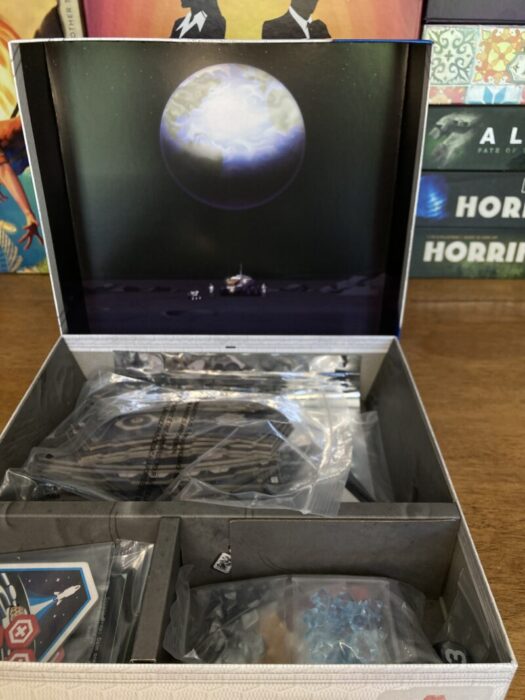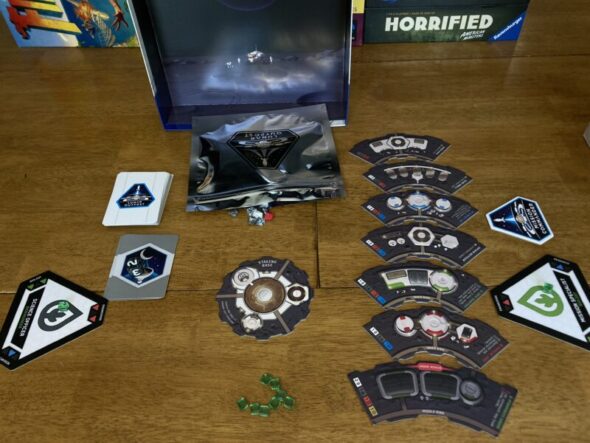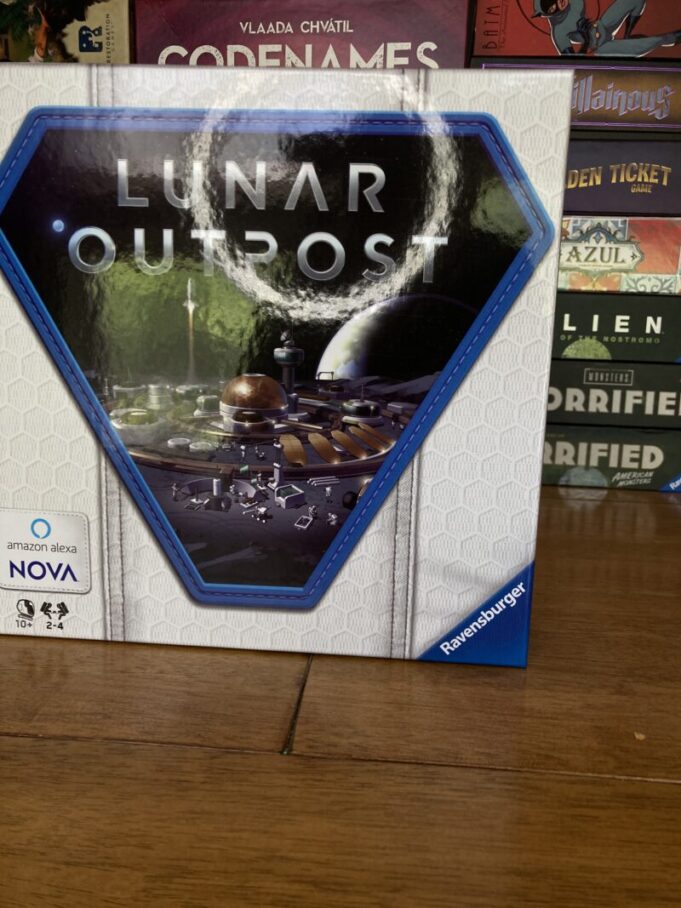After watching Pixar’s Lightyear in theaters this weekend, I got the urge for more space. Ravensburger’s new co-op builder game Lunar Outpost could have been the answer. With the exception of a few incomplete instructional points and a buggy Alexa companion skill, the game is an interesting take on build-objective cooperative games.

In Lunar Outpost, 2-4 players team up to build a space station represented as a small pancake sized circle and adding pieces by mining enough resources to complete the requisite number of sections to win. Communication and pre-strategizing are key as you’ll start with a limited number of life support resources that represent how many turns you’ll get to take in each round. Standing in your way are random catastrophic space events that would make Mark Whatney cringe. Similar to the fate deck in the Villainous games, event cards alter the game in ways that can either ramp up the difficulty or be a benefit. In one round you may get an extra couple of life support turns while in the next round one of the sections that you just spent resources on might now be offline and need more resources in order to complete the mission. Depending on the mission you have between 6 or 12 rounds to complete the required number of base sections in order to win.
At its core, the game’s strategy element is great at team building and its aesthetic is no slouch either. From the time you open the box, the level of detail and craftsmanship is present. Individually sealed bags for different categories of pieces, sturdy board game parts, and it all leans into a very NASA cosmic style design. There’s no doubt that on the surface it’s a great looking game.

There are a few notable issues plaguing the title. At the top is a lack of clarity in the game’s rules explanation. While Lunar Outpost comes with an initial training mission to help new players understand the fundamentals of the game, that mission is incredibly simplistic and does not go into more of the “what if this happens” about the game’s rules. A perfect example is playing cards not always mentioning when parts of their actions count towards the one action you can take per turn or when parts of the base’s effects can be activated after you build on it.
One of the things that definitely needs to be updated ASAP is the Amazon Alexa functionality of the game. Instead of using the fate deck and die to determine whether rounds will have hindrances or help, players can use the LO skill on Alexa to have the AI determine the rules and randomness of the game for them. It’s a great touch that’s a bit underbaked. During our playthrough, utilizing the Alexa skill gave the game a bit more sci-fi cred but its script is soo limited that it wears thin after a bit. Our game also crashed with Alexa on the last round which left such a feeling of frustration because we’d just gone through 10 rounds of building.
Overall, Lunar Outpost is a beautifully developed board game concept that needed a bit more QA before going to market. Its strategy-based co-op foundation is solid but some frustrating incomplete rule book writing and underdeveloped optional companion component make you feel the length of the game. It’s a shame because this is an interesting mechanical idea and concept for a game that I’d like to see a follow up title with a bit more testing behind it come out in the future.



















